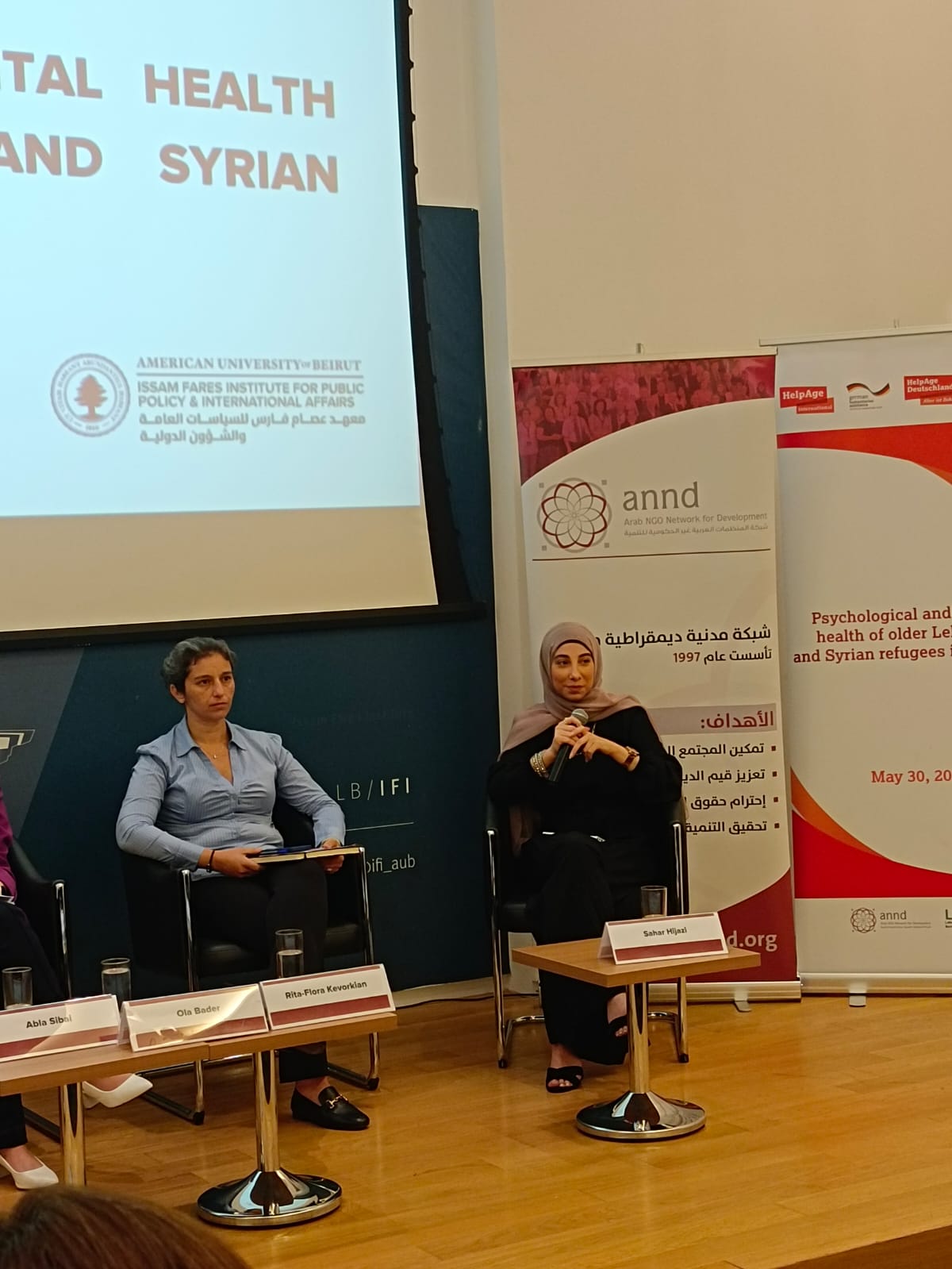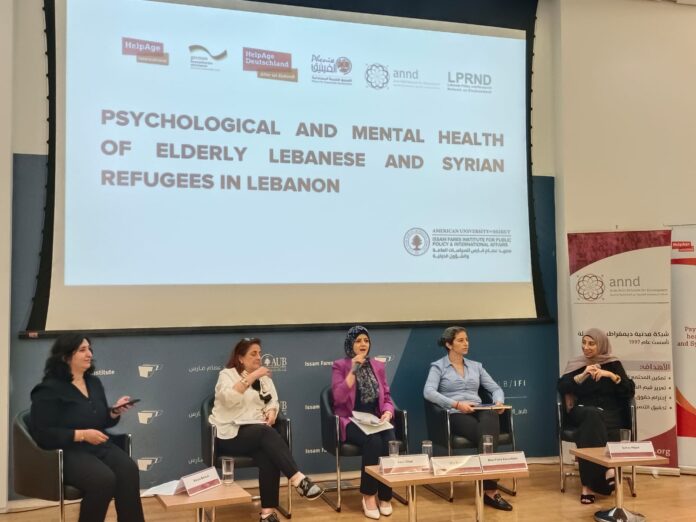As part of its endeavor to advocate for the causes of older persons in Lebanon and throughout the world, Amel Association International has participated in the seminar organized by the Phenix Center for Economics & Informatics Studies in Jordan and HelpAge International, in collaboration with the Arab NGO Network for Development and the Lebanon Research and Policy Network on Displacement at the Issam Fares Institute for Public Policy and International Affairs, on the psychological and mental health of elderly Lebanese and Syrian refugees in Lebanon.
The panel discussion brought together researchers, experts, and civil society representatives to foster dialogue and shape policies that prioritize the mental health and well-being of older people in Lebanon, including the coordinator of Amel’s Older People Program Sahar Hijazi, who participated as a panelist in a stimulating debate that shed light on the challenges faced by older people in Lebanon and the urgent need for comprehensive support.
Hijazi presented the civil society perspective on mental health services for the older persons in Lebanon, drawing from Amel’s older persons and mental health programs and services. Emphasizing the drastic change in living standards experienced by older people, Amel highlighted the negative impact on access to food, security, healthcare, and transportation, resulting in a deep sense of isolation, loneliness, and helplessness among this vulnerable population.
 In this context, Amel stressed the need for both short-term and long-term policy and institutional changes to support older people in Lebanon effectively. Strengthening social protection and establishing universal healthcare were highlighted as crucial measures to improve the well-being and dignity of older individuals. Considering the prevalence of feelings such as embarrassment and shame among the majority of older people when it comes to their inability to earn income or their dependence on others, Amel called for concerted efforts to restore the dignity of the elderly by providing comprehensive support, including access to essential services, livelihood opportunities, and psychosocial assistance.
In this context, Amel stressed the need for both short-term and long-term policy and institutional changes to support older people in Lebanon effectively. Strengthening social protection and establishing universal healthcare were highlighted as crucial measures to improve the well-being and dignity of older individuals. Considering the prevalence of feelings such as embarrassment and shame among the majority of older people when it comes to their inability to earn income or their dependence on others, Amel called for concerted efforts to restore the dignity of the elderly by providing comprehensive support, including access to essential services, livelihood opportunities, and psychosocial assistance.
Amel’s elderly program aims to enhance the well-being and dignity of older people. Defending a culture of solidarity rather than charity, Amel promotes human dignity through 32 centers throughout the country, six mobile clinics, two mobile education units, and a mobile protection unit, and can count on the support of 1,500 volunteers and full-time workers.


 Creative Commons Attribution 4.0 International license
Creative Commons Attribution 4.0 International license